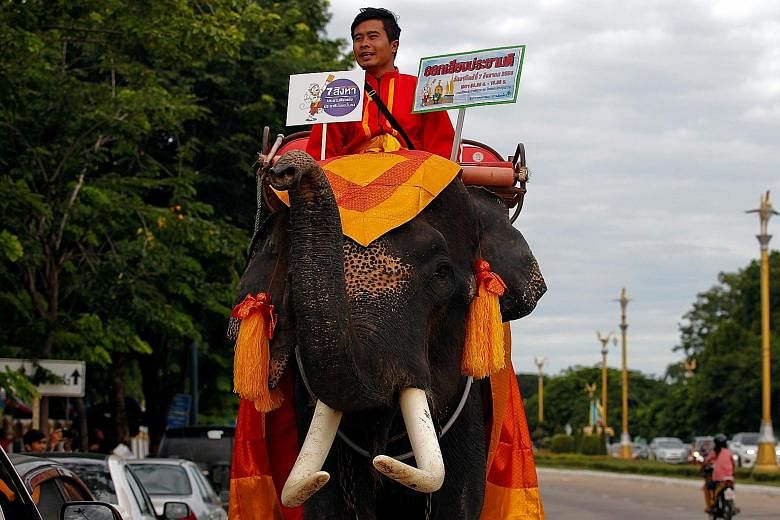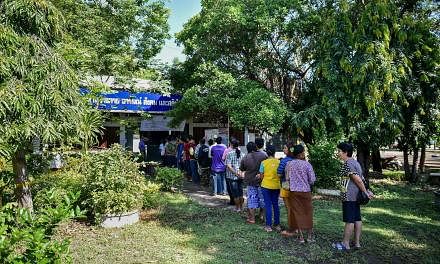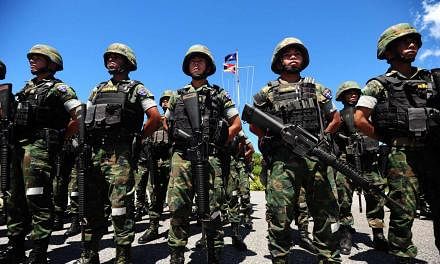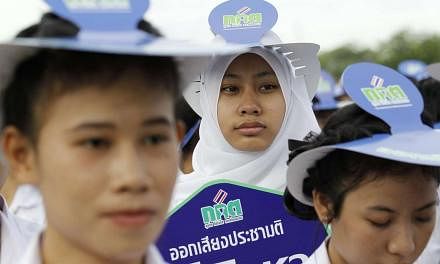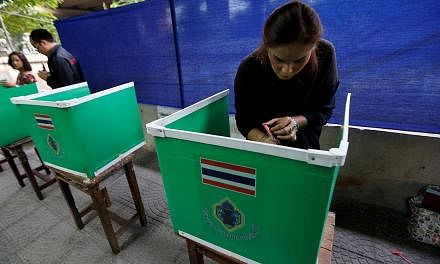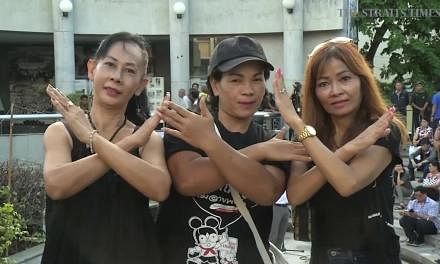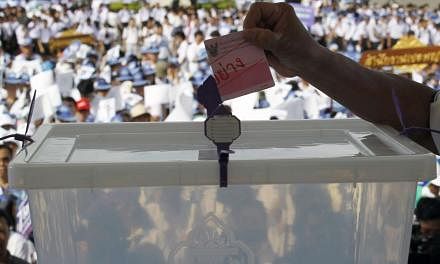Chopper motorcycles, tuk tuks and even horses were roped in for mass processions across Thailand yesterday as the authorities tried to drum up support for a constitutional referendum taking place on Sunday.
This will the first time Asean's second-largest economy heads to the ballot box since the military seized power from a caretaker government paralysed after a sabotaged election in 2014.
While drafters of the new Charter have touted it as "strong medicine" to fight corruption and abuse of political power, analysts say voters are more likely to use the plebiscite to voice their approval - or disapproval - of military rule.
"Finally, it's going to be a choice between the military or not," Thammasat University political scientist Prajak Kongkirati told The Straits Times.
Prime Minister and coupmaker Prayut Chan-o-cha, who regards the enactment of a Constitution as a key step towards the resumption of elections next year, has rejected suggestions that he step down if the Charter is rejected. But he has not made clear what exactly his government plans to do in this scenario.
Given that the draft Constitution hands the junta broad oversight over the future elected government, and that a rejection of the draft Charter would only extend military rule, human rights activists say voters are essentially choosing between a rock and a hard place.
Mr Kan Yuenyong, an analyst from think-tank Siam Intelligence Unit, expects voting patterns to reflect the polarisation of Thai society. Deep rifts have emerged over the past decades over the electoral dominance of the Puea Thai party and its previous iterations, which derive the bulk of its support from the rural masses in the north and north-east.
Just over 50 million voters will decide on the Constitution which, if accepted, will be the 20th in the coup-prone kingdom.
The vote is taking place amid mounting concerns over the health of revered 88-year-old King Bhumibol Adulyadej, who was last seen in public in January and was treated in hospital for a low fever and possible blood infection last month. With a royal transition looming, the military - which sees itself as a protector of the monarchy - has significantly tightened controls over civil liberties.
Strict referendum rules that threaten violators with up to 10 years in jail have hushed public expression about the draft Constitution. Yet several political figures have already announced how they intend to vote.
Ousted prime minister Yingluck Shinawatra, who up until 2014 led the Puea Thai party-run government, has said she will reject it. She wrote on her Facebook account: "The Constitution is supposed to recognise people's rights, create a balance of power, and find a solution for the country. I don't see any of that."
Democrat Party leader Abhisit Vejjajiva similarly announced at a press conference last week that he disapproved of the draft.
Analysts say this has given last-minute momentum to the "vote no" campaign, as key Democrat figures have been blamed for ushering in the military coup following their 2014 street protests against Ms Yingluck's Puea Thai government.
The draft Constitution allows the junta to pick almost all the 250 senators during the transitory five-year period.
A separate question on Sunday's ballot paper will ask voters if they will agree to having these appointed senators join the elected Lower House in picking the prime minister - who need not come from an election.
The Thai authorities have spared no effort to ensure a smooth plebiscite, even going to the extent of interrogating two eight-year-old girls who tore a list of voters because they found its pink paper pretty.
